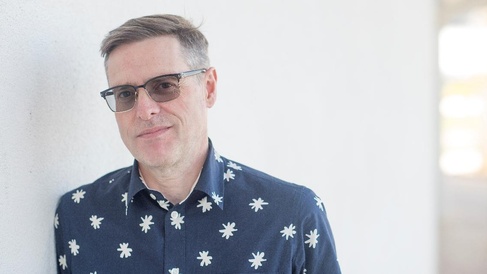
Professor Mark Girolami, Sir Kirby Laing Professor of Civil Engineering and Royal Academy of Engineering Research Chair at the University of Cambridge, Director of the Data-centric Engineering Programme at The Alan Turing Institute and academic lead for CSIC and CDBB, has been heading up an international consortium whose collaborative research is now published in the Proceedings of the National Academy of Sciences (PNAS). The research paper provides a statistical redefinition of the well-known Finite Element Method (FEM), which has been used as a computational predictive tool in the engineering and physical sciences for more than 70 years.
Recent advances in data acquisition technologies suggested the need to Professor Girolami and his team to reconsider the FEM from a statistical perspective, and this resulted in a new FEM which is a combination of both data and mathematical models that enhances predictions in engineering and scientific applications in an extremely powerful way.
By accepting that our mathematical descriptions of complex systems can be wrong, or at best misspecified, we were able to redefine the theoretical foundations of the FEM to one that is essentially statistical. This then provided for the first time a very natural way to systematically use the FEM to blend data and mathematical models in a really powerful manner. Professor Mark Girolami
“By accepting that our mathematical descriptions of complex systems can be wrong, or at best misspecified, we were able to redefine the theoretical foundations of the FEM to one that is essentially statistical. This then provided for the first time a very natural way to systematically use the FEM to blend data and mathematical models in a really powerful manner,” said Professor Girolami.
While the research published in PNAS demonstrates the method in the context of internal ocean waves (solitons), which regularly occur on Australia’s North West Shelf and are a threat to offshore structures such as wind turbines, it has potential to transform most areas of the sciences and engineering. “These waves have a significant impact on the engineering design, safety and operations of the offshore energy industry, and improved methods of prediction provides significant benefit,” said Connor Duffin, PhD student from the University of Western Australia School of Physics, Mathematics and Computing and lead author on the paper.
Professor Girolami pointed out the implications of the research for advancement of Digital Twins: “The idea of Digital Twins – the pairing of the physical and digital world – is of significant current interest to the broader engineering community. By systematically integrating data with FEMs, this new work provides the much-needed theoretical foundations, methodology and practical algorithms by which these Digital Twins can be realised.
“It also serves as an ideal springboard into the forthcoming ARC Industrial Transformation Research Hub for Transforming Energy Infrastructure through Digital Engineering, hosted at UWA and directed by Shell Professor Phil Watson, with which CSIC and The Alan Turing Institute is very excited to collaborate.”
Researchers involved in the project include Connor Duffin, Edward Cripps, Thomas Stemler from The University of Western Australia, and Mark Girolami from the University of Cambridge and The Alan Turing Institute.
